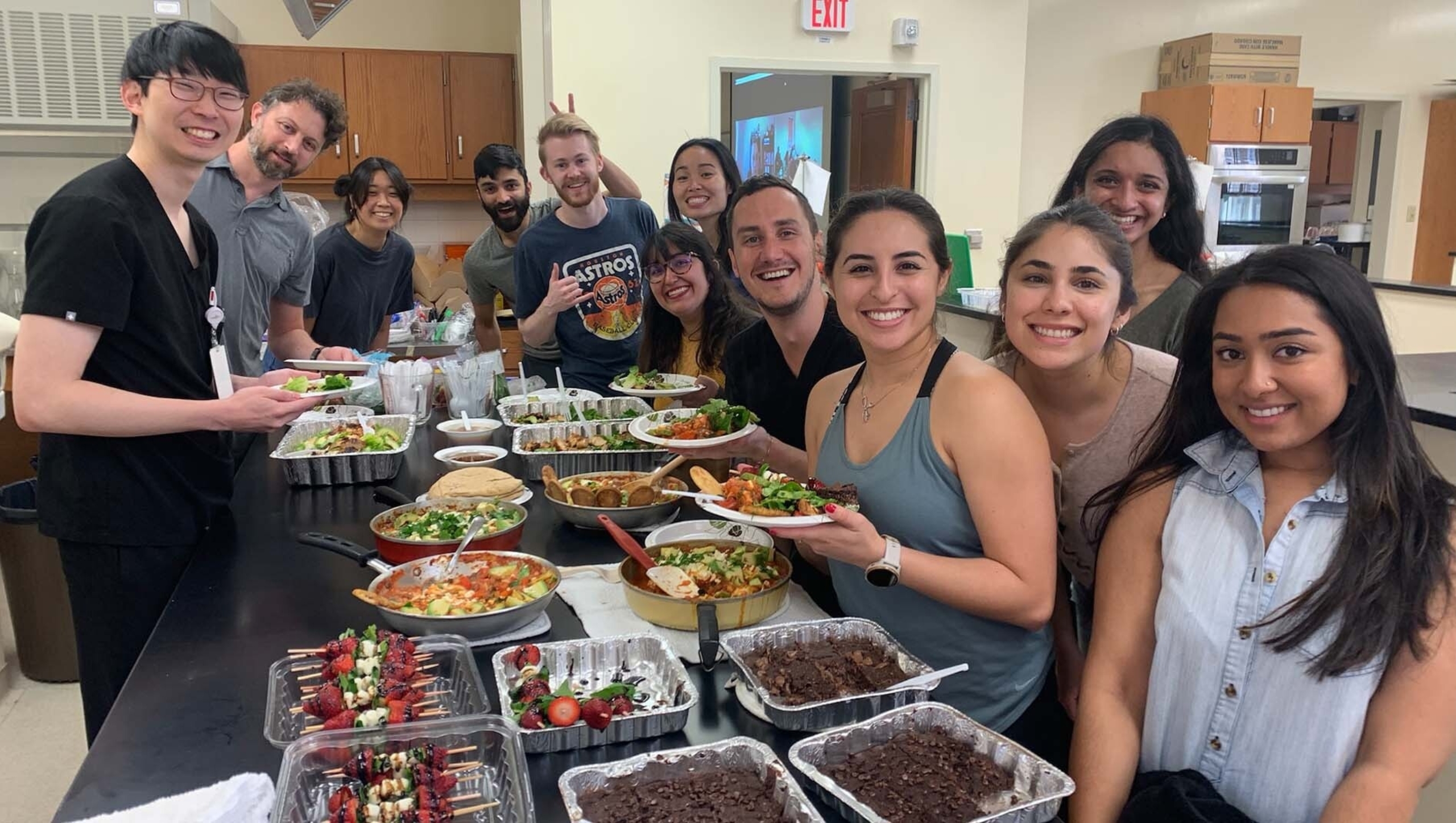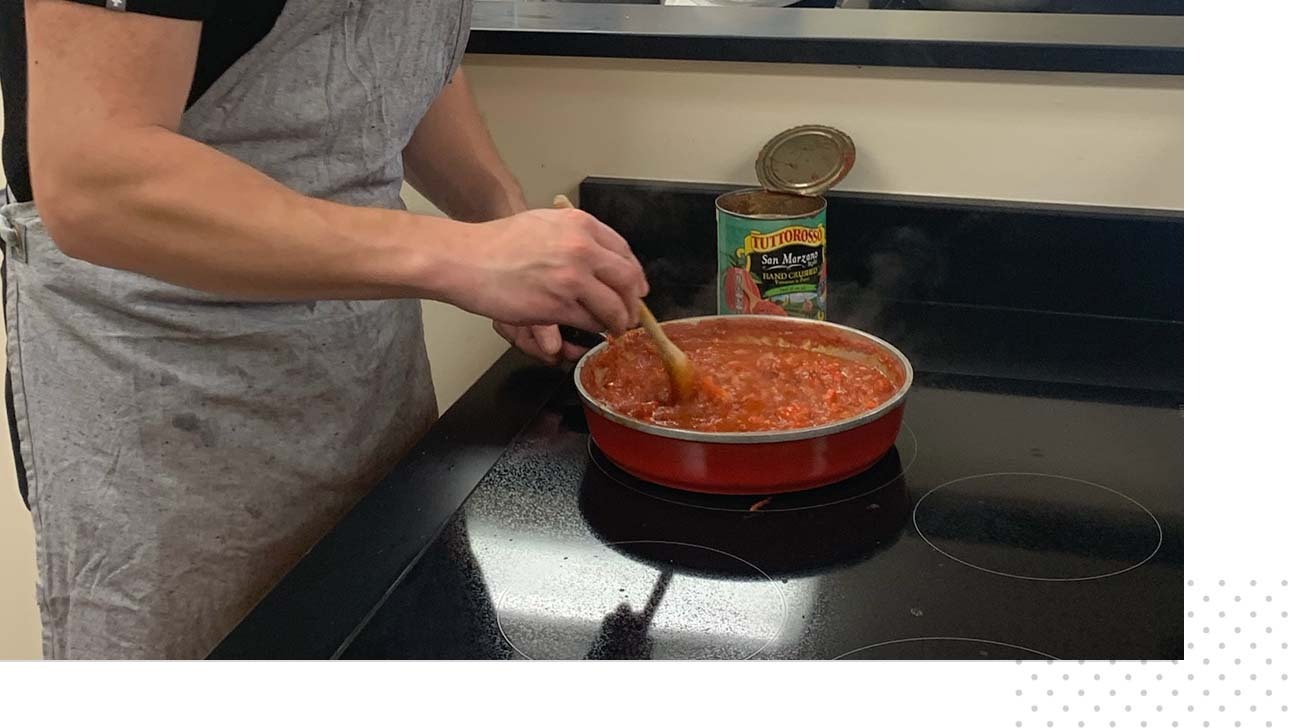In the latest sessions of Eat Well: Culinary Medicine — an educational offering within the Department of Pediatrics that focuses on how food impacts health and how to incorporate nutrition and healthy eating practices into different lifestyles — pediatric trainees focused on fad diets.
The sessions were led by pediatric hospitalist Hanh Keyburn, D.O., and registered dietitian Keli Hawthorne, M.S., and it took place in person in the Department of Nutritional Sciences’ teaching kitchen, where participants were able to taste each other’s food creations during discussions.

Culinary Medicine provides pediatric trainees at Dell Med a look at the intersection of the art of food and the science of medicine and nutrition.
The sessions focused on fad diets, including popular trends such as cleanses, weight loss medications, low-carbohydrate diets, elimination diets, pre-portioned diets and calorie counting. The sessions also covered diet culture and the impact on children.
Brittany Crim, Ph.D., RD, of the UT Fitness Institute of Texas joined the sessions as a guest speaker. She shared her experiences working with patients for weight management and fad diets as well as what she observes actually works for sustained weight loss, such as being cognizant of how and why we eat the way we do, and incorporating physical activity and resistance training into a daily lifestyle.

Residents and fellows cooked in pairs or triads to make shakshuka (a Middle Eastern/North African brunch dish of poached eggs in tomatoes, onions and peppers served with bread or pita), black bean brownies, grilled teriyaki chicken salad, and strawberry caprese salad skewers with balsamic reduction.
The sessions’ featured recipes were chosen for further discussion about including all food groups in moderate portions.
UT nutrition students in their internship program to become registered dietitians also participated in the sessions, providing discussion on ingredient nutrients and how food impacts health. Having this interprofessional aspect to the program provides opportunities to discuss how dietitians and physicians can partner in inpatient and outpatient settings.
Residents and fellows who participated in the sessions reported that learning practical cooking techniques and nutrition knowledge improves their confidence in talking to patients and families about nutrition. They also endorsed that they have more understanding of fad diets and how to approach the topic with themselves and with their patients.
To receive the recipes used in these sessions of Culinary Medicine, email the team at culinarymedicine@austin.utexas.edu. Catch up on Instagram to see what trainees learned about food insecurity, or explore the Culinary Medicine blog for summaries of past classes.